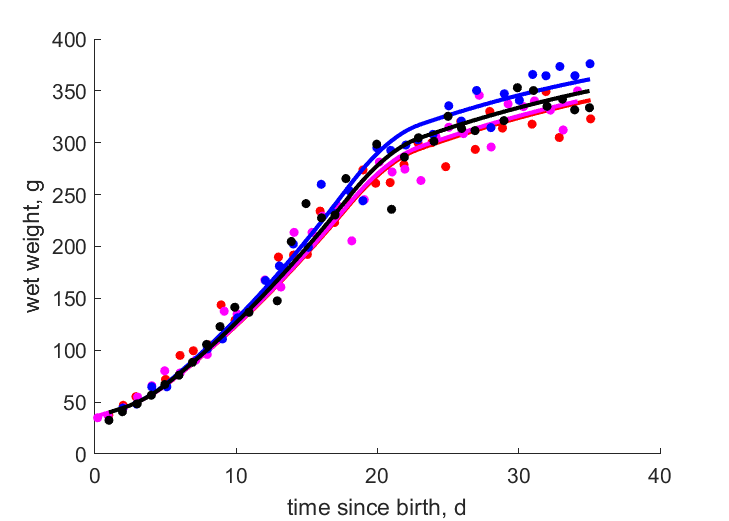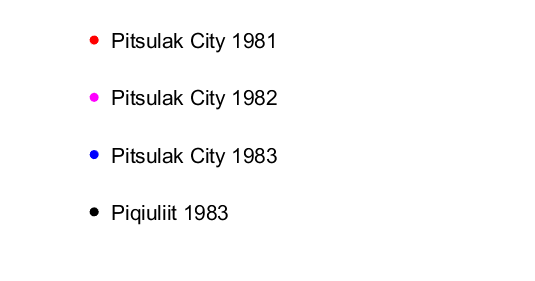Predictions & Data for this entry
| Model: std | climate: MC | migrate: Ms | phylum: |
| COMPLETE = 2.6 | ecozone: MAN | food: biCvf, biCik | class: |
| MRE = 0.042 | habitat: xiMcp, 0bTd | gender: Dg | order: |
| SMSE = 0.004 | embryo: Tncfm | reprod: O | family: |
Zero-variate data
| Data | Observed | Predicted | (RE) | Unit | Description | Reference |
|---|---|---|---|---|---|---|
| ab | 25 | 23.44 | (0.06242) | d | age at birth | AnAge |
| tx | 34 | 34.01 | (0.000302) | d | time since birth at fledging | Cair1987 |
| tp | 102 | 112.2 | (0.09985) | d | time since birth at puberty | guess |
| tR | 1095 | 1095 | ( 0) | d | time since birth at first egg laying | AnAge |
| am | 1.091e+04 | 1.072e+04 | (0.01793) | d | life span | AnAge |
| Wwb | 33 | 35.77 | (0.08385) | g | wet weight at birth | AnAge |
| Wwi | 427.5 | 428.9 | (0.003299) | g | ultimate wet weight | AnAge |
| Ri | 0.005479 | 0.005611 | (0.02405) | #/d | maximum reprod rate | AnAge |
| pXm | 780 | 779.5 | (0.0006695) | kJ/d | food intake at 25 d | Cair1987 |
Uni- and bivariate data
| Data | Figure | Independent variable | Dependent variable | (RE) | Reference |
|---|---|---|---|---|---|
| tW_PC81 |   | time since birth | wet weight | (0.0565) | Cair1987 |
| tW_PC82 |   | time since birth | wet weight | (0.05877) | Cair1987 |
| tW_PC83 |   | time since birth | wet weight | (0.04272) | Cair1987 |
| tW_P83 |   | time since birth | wet weight | (0.05323) | Cair1987 |
Pseudo-data at Tref = 20°C
| Data | Generalised animal | Cepphus grylle | Unit | Description |
|---|---|---|---|---|
| v | 0.02 | 0.03721 | cm/d | energy conductance |
| p_M | 18 | 1160 | J/d.cm^3 | vol-spec som maint |
| k_J | 0.002 | 0.04587 | 1/d | maturity maint rate coefficient |
| k | 0.3 | 0.2902 | - | maintenance ratio |
| kap | 0.8 | 0.8771 | - | allocation fraction to soma |
| kap_G | 0.8 | 0.7983 | - | growth efficiency |
| kap_R | 0.95 | 0.95 | - | reproduction efficiency |
Discussion
- mod_1: v is reduced
- mod_2: Pseudo-data point k is used, rather than k_J; Data set tp and parameter t_R are added, the latter replacing clutch interval t_N. Postnatal T is based on PrinPres1991, see get_T_Aves. See further the revision page, theme puberty
Facts
- Food is benthic blennies, principally Stichaeus punctatus and Eumesogrammus praecis (Ref: Cair1987)
Acknowledgment
- The creation of this entry was supported by the Norwegian Science Council (NFR 255295)
Bibliography